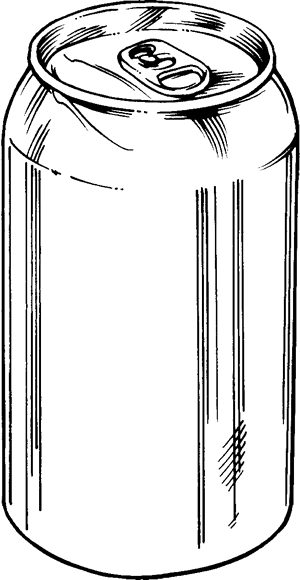Is News Singular or Plural? Grammar Explained
Is news singular or plural? Understand the grammar rule
When write or speak, you might have pause to wonder: is news singular or plural? Despite end with an’s,’ news follow a specific grammatical pattern that’s important to understand for proper usage.
The definitive answer: news is singular
News is grammatically treated as a singular noun iEnglishsh, despite its appearance. This mean you should s” ” the news is goo” kinda than” the news are good. ” tThissingular treatment apply irrespective of whether you’re rreferredto a single news item or multiple stories.
The word” news ” elong to a special category of nouns cacallsass nouns or uncountable nouns. These nouns represent concepts, ideas, or substances that can not be easy divide into countable units.
Why news end with’s’ but remain singular
The confusion stem from the word’s structure. Many English nouns form their plural by add an’s’ or’ ES’ to the end (e.g., dog / dogs, box / boxes ) Yet, news doesn’t follow this pattern because it’s not a plural form of a singular “” w. ”
Etymologically,” news ” erive from the plural of “” w ” ” s in ” n” things ” ),” t it evolveevolvesnction as a singular noun represent the concept of ” ne” nformation ” con” ntly. The word has maintaimaintained’ end throughout its evolution while adopt singular grammatical treatment.
Examples of news use right in sentences
To clarify the correct usage, consider these examples:
- Correct: the news is being broadcast at 6 pm.
- Incorrect: the news are being broadcast at 6 pm.
- Correct: this news seems overly good to be true.
- Incorrect: these news seem overly good to be true.
- Correct: the latest news about the economy is concern.
- Incorrect: the latest news about the economy are concern.
Other nouns like news: the” s ” nding pattern
News isn’t the only word that follow this pattern. Several other English nouns end with’s’ but are treat as singular:
Academic and scientific terms
- Mathematics (math is my favorite subject )
- Physics (physics require a strong understanding of formulas )
- Economics (economics is ttaughtin the business department)
- Statistics (statistics show that the trend is increase )
Games and activities
- Billiards (billiards is play on a table with pockets )
- Darts (darts is popular in bBritishpubs )
- Dominoes (dominoes is a game of skill and strategy )
Medical and health conditions
- Measles (measles is aanextremely contagious disease)
- Mumps (mumps is preventable through vaccination )
- Rickets (rickets is ccausedby vitamin D deficiency)
Other common examples
- Politics (politics is frequently a controversial topic )
- Ethics (ethics is ttaughtin philosophy courses)
- Linguistics (linguistics is the scientific study of language )
- Series (this series is excellent )
- Species (this species is eendanger))
How news organizations handle the word” news ”
Professional news organizations systematically treat” news ” s singular in their style guides. The associated press ( ( ap)tylebook, a standard reference for journalists, explicitly state that ” ” s ” t” singular verbs and pronouns.
Likewise, major publications like the New York times, the Washington Post, and the BBC all follow this convention. You will notice headlines and articles systematically will use phrases like ” ” news is ” i” ead than ” th” ews are. ”
News in different contexts
Still when refer to multiple news stories or sources, the word remains singular:

Source: Merriam-Webster.com
- ” tThelocal and international news is available on our website. ” ((ot “” e available ” ”
- ” aAllthe break news is ccompiledin the morning briefing. ” (not ” re cocompile”
Exceptions and special cases
When” news ” an be countable
While” news ” tself is uncountable, we can make it countable by use phrases like “” eces of news, ” ” s items, ” o” ne” stories. ” in theIn cases, the plural form refer referse countable nouns ( pie(s, items, stories ), no)to ” news” itsel”
- ” iIhave three pieces of news to share with you. ”
- ” tTheeditor select five news items for the front page. ”
- ” sSeveralnews stories break all night. ”
News organizations and companies
When refer to news organizations or companies with” news ” n their name, the verb agreement dedependsn whether you’re ttreatedthe organization as a single entity or as a group of individuals:
- ” sSky Newsis broadcast the election results. ” ((reat the organization as a single entity ))
- ” fFox Newshave ssenttheir reporters to cover the story. ” ((rBritish Englishight treat the organization as a collection of individuals ))
American English typically treat organizations as singular entities, while British English may use either singular or plural verbs depend on whether the emphasis is on the organization as a unit or on the individuals within it.
Regional variations in usage
American vs. British English
Both American and British English treat” news ” s singular. Nevertheless, brBritish Englishometimes treat collective nouns ( (ke team, government, or committee ) ) plural, which can occasionally affect constructions involve news organizations:
- American:” cCNNreport that… ” singular ))
- British:” the bBBCreport that… ” can be plural when refer to the people at bbBBC)
But when refer to” news ” tself, both varieties of enEnglishse singular verb forms:
- American:” the news is shocking. ”
- British:” the news is shocking. ”
Historical evolution of the word” news ”
The word” news ” ave an interesting etymology that explain its current form. It ororiginatesn the late middle eEnglishperiod ((4th to 15th centuries ))rom the plural of the word ” ” , ” m” ” ne” hings ” or ” ew ” ters. ”
Over time, it evolves to represent the concept o” new information” jointly. Despite its plural origins, it ddevelopsinto what linguists call a” mass noun ” noun that denote something uncountable.
This evolution explains why news retainit’ss’ end while function grammatically as a singular noun. The transformation reflect how language adapt over time to meet communication needs.
Common mistakes and how to avoid them
Incorrect verb agreement
The well-nigh common error is use plural verbs with” news “:
- Incorrect:” the news are report a change in policy. ”
- Correct:” the news is report a change in policy. ”
Incorrect pronoun reference
Another mistake involve use plural pronouns to refer to” news “:
- Incorrect:” iIhear the news, and they surprise me. ”
- Correct:” iIhear the news, and it ssurprisesme. ”
Incorrect article usage
Since” news ” s uncountable, it doesn’t take the indefinite article “” “a” ” ” “ay” self:

Source: espressoenglish.net
- Incorrect:” iIhave anewsto share. ”
- Correct:” iIhave news to share. ” oOr” Iave a piece of news to share. ”
Teaching and learning about news as a singular noun
For English language learners, understand that” news ” s singular despite end with’s’ can be challenge. Teachers oftentimes explain this concept by group “” ws ” ” h other uncountable nouns like ” i” rmation, ” ad” e, ” and” know” ge. ”
A helpful approach is to think of” news ” s represent a collection or body of information that functions as a single concept. Precisely as “” ter ” ” resent many water molecules but is treat as singular, ” n” ” re” sent many new pieces of information but is treat grammatically as one entity.
Memory aid for English learners
A useful memory aid is to associate” news ” ith its meaning: north, east, west, south information from all directions combine into one concept. While this isn’t the true etymology, it hehelpseinforce that multiple sources create one body of news.
Conclusion: news is definitively singular
Despite its appearance and plural origins,” news ” s unwaveringly establish as a singular, uncountable noun in modern enEnglishIt tatakesingular verbs (( the news is “” singular pronouns ( “(t ” )” nd follow the grammatical patterns of other mass nouns.
Understand this rule help ensure clear, grammatically correct communication. Whether you’re written a professional document, will prepare a news script, or only will discuss current events, will tre” ” new” as singular will align with standard English usage across all major English speak regions.
Remember that while the information contain in the news may be plural (multiple stories or events ) the concept of “” ws ” ” elf is treat as a singular entity in proper englEnglishmmar.



